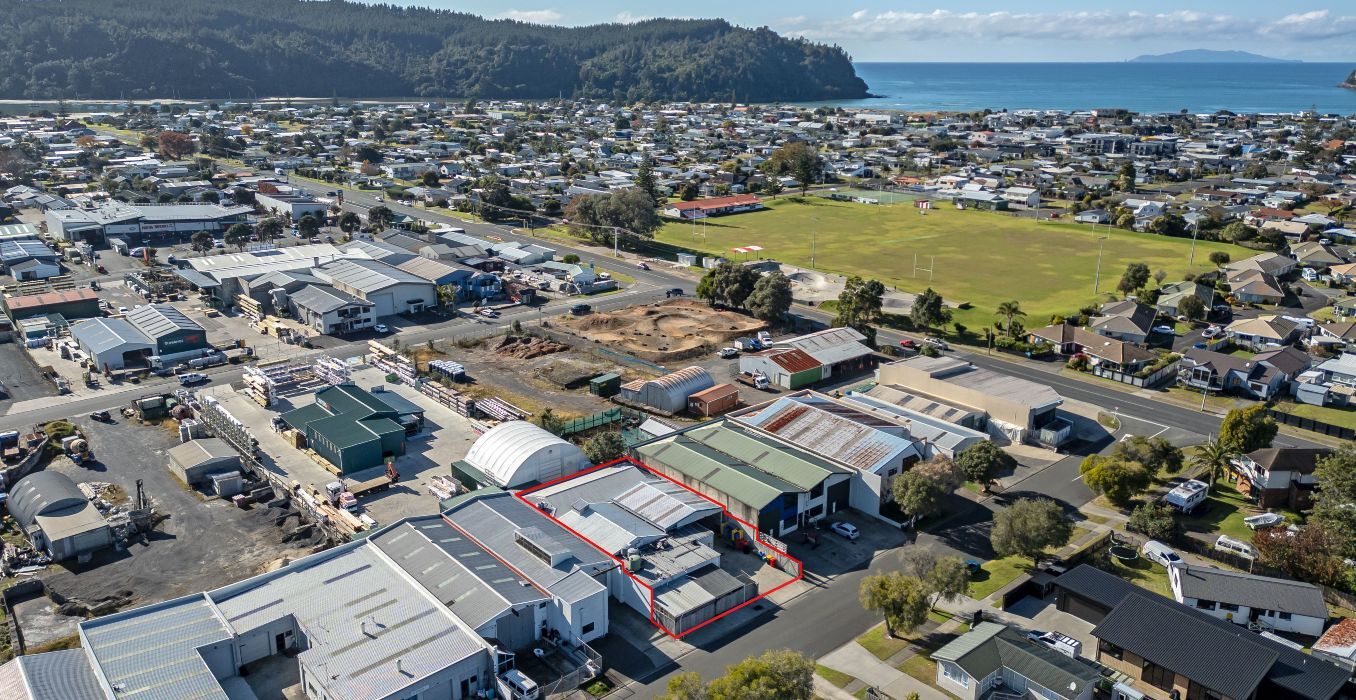 Boundary lines are indicative only
Boundary lines are indicative onlyCommercial -
Investors get ready to shell out as former scallop processing plant goes up for sale
Specially purposed land and buildings which previously sustained one of the biggest scallop processing plants in the North Island – whose customers included New Zealand’s two biggest supermarket chains – has been placed on the market for sale.
Located in the industrial precinct of Whangamata township on the eastern side of Coromandel Peninsula, the property was used by Whangamata Seafoods for more than 40-yers to process tonnes of big juicy scallops during the annual commercial scallop harvesting season between July and December.
Rich in seafood, the Coromandel Peninsula produces more than 24 percent of New Zealand’s Pacific oyster harvest to a value in the region of $10milion, as well as 36 percent of the country’s green shell mussel tonnage.
When it was operating, Whangamata Seafood’s site at 112 Wattle Place distributed shucked scallops to multiple retail outlets throughout the North Island. The company has ceased trading, and the property is now vacant.
The land and buildings at 112 Wattle Place in Whangamata are now being marketed for sale by auction on July 11 through Bayleys Whangamata. Salesperson Josh Smith said the block consisted of 420-square metres of food processing infrastructure premises and offices sitting on some 699-square metres of freehold land zoned commercial under the Thames Coromandel District Council plan.
Smith said that in its current format, the location contained the necessary ‘turnkey’ infrastructure required to sustain a primary produce food manufacturing business – such butchery, fruit and vegetable packaging business, or a boutique ‘home produce’ entity looking to upscale the size of its jam, chutney or sauce ranges.
Smith said the vendor was open to negotiating the sale of the export certified commercial-grade food processing equipment – such as blast freezers, and stainless-steel benching – in addition to the land and building.
“The design and layout of the food processing portion of the property includes a covered high-stud drive-in warehousing structure where refrigerated transporter trucks can pull up immediately adjacent to the large commercial freezer units to transfer product efficiently, and with minimum temperature variations,” said Smith.
“The nearby main processing room is contained inside a temperature-controlled environment encased within freezer paneling walls, and endowed with extensive hose and wash-down connections to clean raw products, and sealed concrete flooring with inlaid floor drainage guttering to enable a hygienic work area in line with strict Ministry for Primary Industries requirements.
“Adjacent to the processing room are staff amenities including a kitchen area, bathrooms, and covered external area containing picnic style tables and chairs for use by staff during rostered refreshment breaks. Elsewhere on site is a compact office space for administrative staff.”
Smith said the Wattle Place address in a quiet cul-de-sac road was situated within Whangamata’s compact central industrial area alongside a myriad of building, construction, and electrical supplies retailers, storage amenities, depots, and yards, as well as light industry machinery and equipment service firms.
“There is no available land to expand industrial activities in this sector of Whangamata, and as a result, sites are highly sought-after because of their close proximity to the town’s central business district and surrounding residential population. We’ve already fielded interest in the site from within the Whangamata Beach Hop hot rod community for shared use to store vintage high-value classic cars,” he said.
“Following that line of thought, the premises could easily be converted into a secure warehousing unit suitable for housing a private car collection or for covered lock-up boat, caravan or motorhome storage. With adjoining industrial premises on three sides, the location could easily be fenced in along its road frontage to make a very secure workshop style premises.”
Figures from Statistics New Zealand show that employment growth in Whangamata’s population catchment area averaged 2.6 percent annually in the 10-years to March 2023, compared with 2.3 percent per annum across the national economy.
The Statistics New Zealand data also shows that the Greater Whangamata area has 759 businesses trading as of 2023 - up 1.2 percent from a year earlier. Growth in the number of business units in the wider Whangamata community averaged three percent per annum over the past 10 years - compared with a figure of 2.3 percent annually in the national economy.